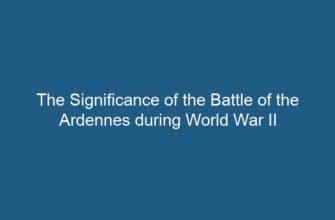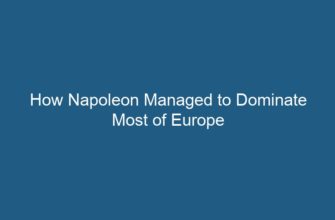The leader of Germany during World War I was Kaiser Wilhelm II. He reigned as the German Emperor and King of Prussia from 1888 until his abdication in 1918. Wilhelm II played a significant role in shaping Germany’s policies and decisions during the war, making him a central figure in the conflict. This article will delve into various aspects of Wilhelm II’s leadership during World War I.
- 1. Background of Kaiser Wilhelm II
- 1.1 Early Influences and Education
- 1.2 Relationship with Bismarck
- 2. The Outbreak of World War I
- 2.1 Wilhem II’s Role in the July Crisis
- 2.2 The Schlieffen Plan
- 3. Leadership During the War
- 3.1 Military Leadership
- 3.2 Domestic Policies and Propaganda
- 4. Impact and Consequences
- 4.1 Abdication and the Treaty of Versailles
- 4.2 Legacy and Historical Assessment
- 5. Conclusion
1. Background of Kaiser Wilhelm II
Kaiser Wilhelm II, born Friedrich Wilhelm Viktor Albert of Prussia, was born on January 27, 1859, in Berlin. He was the eldest grandchild of Queen Victoria of the United Kingdom and the son of Crown Prince Frederick William of Prussia. Wilhelm II ascended to the throne in 1888 after the death of his father and the brief reign of his sickly grandfather, Wilhelm I.
1.1 Early Influences and Education
Wilhelm II was influenced by his conservative upbringing and the military traditions of the Prussian royal family. He received a strict education, emphasizing discipline, loyalty, and the importance of the military. These early influences would shape his leadership style and policies as the ruler of Germany.
1.2 Relationship with Bismarck
During the early years of his reign, Wilhelm II clashed with Otto von Bismarck, the architect of German unification and the first Chancellor of the German Empire. Wilhelm II sought to assert his authority and pursue his own vision for Germany, which often clashed with Bismarck’s conservative policies. Eventually, Wilhelm II dismissed Bismarck in 1890, marking a significant shift in German politics.
2. The Outbreak of World War I
The assassination of Archduke Franz Ferdinand of Austria-Hungary in June 1914 triggered a series of events that led to the outbreak of World War I. As tensions escalated between European powers, Wilhelm II played a crucial role in shaping Germany’s response to the crisis.
2.1 Wilhem II’s Role in the July Crisis
During the July Crisis of 1914, Wilhelm II supported Austria-Hungary’s efforts to punish Serbia for the assassination of Archduke Franz Ferdinand. He provided Austria-Hungary with a “blank check” assurance of support in their actions against Serbia, which ultimately led to a series of diplomatic and military escalations.
2.2 The Schlieffen Plan
The Schlieffen Plan, developed by German military strategist Alfred von Schlieffen, aimed to quickly defeat France in the west and then turn east to confront Russia. Wilhelm II gave his approval to the plan, which involved a swift invasion of neutral Belgium, a decision that would have significant consequences for Germany’s standing in the international community.
3. Leadership During the War
As World War I unfolded, Wilhelm II exercised significant authority over Germany’s military and political strategy. His leadership style and decision-making process had a profound impact on the course of the war.
3.1 Military Leadership
Wilhelm II was heavily involved in military decision-making and often clashed with his generals. He frequently interfered in strategic matters, sometimes to the detriment of the German war effort. His interventions and micromanagement led to a lack of clear command and coordination within the German military hierarchy.
3.2 Domestic Policies and Propaganda
Wilhelm II also focused on maintaining unity and support within Germany during the war. He implemented various domestic policies, such as increasing government control over the economy and suppressing dissent. Additionally, he utilized propaganda to bolster public morale and justify Germany’s actions.
4. Impact and Consequences
Wilhelm II’s leadership during World War I had far-reaching consequences for Germany and the world. The war ultimately led to his abdication and the end of the German monarchy.
4.1 Abdication and the Treaty of Versailles
In November 1918, as Germany faced internal unrest and military defeat, Wilhelm II abdicated the throne and fled to the Netherlands. The abdication paved the way for the establishment of the Weimar Republic and the signing of the Treaty of Versailles, which imposed significant penalties and reparations on Germany.
4.2 Legacy and Historical Assessment
Wilhelm II’s leadership during World War I is a subject of much debate among historians. Some argue that his aggressive foreign policies and military decisions contributed to the outbreak of the war and Germany’s ultimate defeat. Others contend that external factors and the actions of other nations were equally responsible.
5. Conclusion
Kaiser Wilhelm II’s leadership during World War I was marked by a combination of assertiveness, militarism, and micromanagement. His decisions and policies played a significant role in shaping the course and outcome of the war. The consequences of his leadership continue to be a subject of historical analysis and debate.










